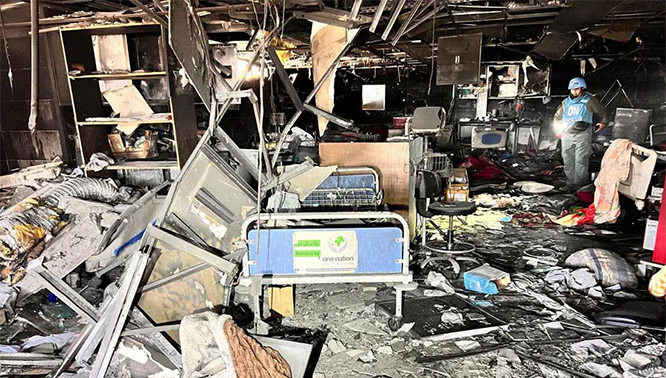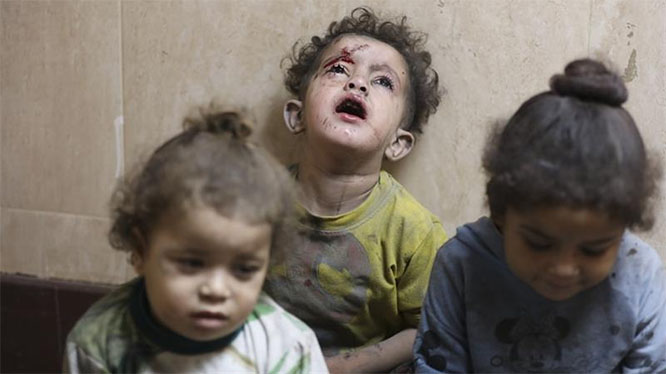Jeddah, Dec 24: Saudi Arabia spends billions on subsidies — so economists were hardly suprised when Thursday’s budget confirmed plans to raise energy and water prices to be more in line with market rates.

But what was an innovative move was the accompanying “Household Allowance” scheme, which is designed to soften the blow of the rate increases for some of the Kingdom’s most needy residents.
The Kingdom’s subsidies, or “energy benefits”, reached close to SAR 300 billion in 2015, when energy and water accounted for about 80 percent of the overall subsidies, the government’s “Fiscal Balance Program – Balanced Budget 2020” document shows.
But such subsidies disproportionately benefit richer Saudi residents: Lower income households — estimated to account for about 40 percent of the population — only benefit from around 30 percent of energy subsidies, the document shows.
Subsidy cuts
In line with moves made by other Arabian Gulf states, Saudi Arabia has been reducing subsidies, a move it terms “energy and water price reform”.
The first phase of this, which was introduced in 2016, included a “marginal” correction to energy and water prices, with very limited impact on low-income households. That phase produced savings of between SR27-29 billion, as well as reducing the growth rate in energy consumption, the Fiscal Balance Program states.
But the Kingdom plans a future phase of subsidy cuts, between 2017 and 2020, as part of its aim to eliminate its budget deficit during that time.
Domestic prices of energy and water products will be linked to the export price of the respective product, and this will fluctuate according to the international market. The prices of those products will be revised periodically, while the linkage of gasoline and diesel to reference prices is currently being studied, and will be implemented between 2017 and 2020.
The combined energy and water price reforms are expected to lead to saving of SR 209 billion per year by 2020, the Fiscal Balance Program states.
But this “phased increase in prices towards international market prices” will make it necessary to compensate low-income consumers.
Household Allowance
Indeed, the planned reforms between 2017-2020 “will significantly impact vulnerable household segments of the society, directly and indirectly”, according to the Fiscal Balance Program.
But it has a plan to soften the blow and in some cases boost the finances of low-income Saudis. The planned national Household Allowance aims to protect low- and medium-income households against the direct and indirect impact of the planned reforms.
Not only will this scheme compensate such households for the steeper costs of energy and water, it will also reward sensible energy consumption, the Fiscal Balance Program states.
“Instead of benefits that are built-in discounted prices of energy products, we will introduce bank transfers to the eligible households that will allow us to better redistribute benefits to the deserving households,” it stated.
“Today most of the vulnerable Saudi household segments are modest consumers. The allowance will cover the costs of sensible consumption, but those who currently consume more than these levels will need to moderate their consumption in order to limit the impact on their disposable income.”
Who can claim?
The principles of this cash allowance scheme have been based on “global success stories”, which suggest cash and bank transfers are the most efficient ways to target eligible recipients, and provide savings opportunities to households if they consume and spend wisely.
The first payment should be made before changing energy prices, according to the global best practices, to ensure that Saudi households can plan their expenditure ahead of price changes and feel relieved. And the amount should vary based on the number of people in a household and their income level.
The Household Allowance plan is open to mainly Saudi national households made up of first degree relatives. “The main beneficiaries of this program include Saudi households along with other segments, such singles who are living independently of their families, the non-Saudi household with a Saudi mother, and holders of a transit permit,” the Fiscal Balance Program states.
The value of the allowance is based on energy and water prices as well as other basic goods, to account for any indirect price rises.
The larger the size of the household, the greater the basic entitlement. In addition, the entitlement amount will be reduced for households with higher income levels — and those on the highest incomes will not have any entitlement at all.
The Ministry of Labor and Social Development responded to Saudi citizens’ many inquiries on social media over the unified “Citizens’ Account Program”, of which the Household Allowance scheme will be part. This will develop to become a comprehensive program that includes all different types of programs and government benefits.
These unified citizen accounts are for groups including Saudi families, unmarried individuals, Saudi mothers married to non-Saudis, and holders of free-movement cards, those that live near borders and have free movement between neighboring countries such as Yemen.
The ministry said on Twitter that the monthly income of the families will be the key factor to be considered. It called on Saudi citizens to shun listening to rumors and take news from credible sources such as the ministry’s call center.
How much will recipients get?
The Fiscal Balance Program gave an illustration on how the allowance could impact a household of six people in 2017, based on five income brackets.
The example showed that a household with an average income of SR4,500 a month would have an extra financial burden of SR450 a month due to higher energy and water prices. But they could receive an average allowance of SR700, leaving them SR250 a month better off.
But a household of six with an average income of SR34,500 a month would have an extra financial burden of SR1,100 a month, and not be entitled to an allowance.
“We will be spending generously, to ensure that we appropriately cover eligible Saudi households,” the Fiscal Balance Program documents state.
“The amount of Household Allowance will increase each year from 2017-2020 with the annual increase in burden on households resulting from gradual reforms. It is expected that the total annual amount of allowances will reach SAR60-70bn in 2020.”
On 1 Feb. 2017, a registration portal will be opened for the scheme, while all eligible social security recipients relevant to the Ministry of Labor and Social Development will be automatically registered.
All eligible beneficiaries will receive their first payment prior to implementing the new price changes, according to the Fiscal Balance Program.







Comments
Add new comment